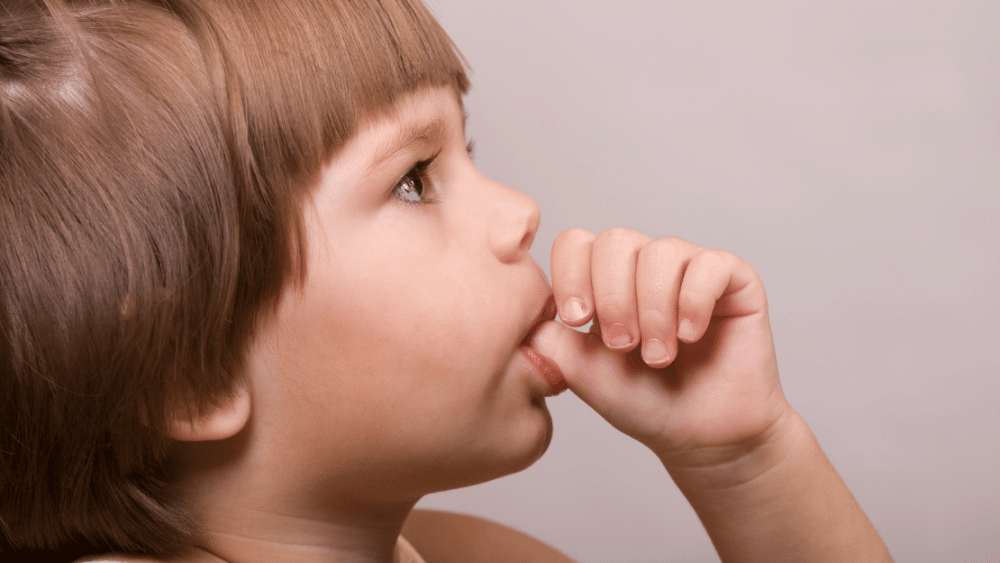For a new parent the amount of information that comes at you about your baby’s health can be overwhelming. Just when you think you’re well-informed, someone shares an article on social media or you read about new research in a parenting magazine, making you question if you’re really doing the right thing for your baby.
For example, there’s a lot of debate out there over pacifiers and thumbsucking. In this article, we unpack the truth about how these activities might affect your baby’s dental health.
It’s not a bad thing
Right off the bat, let us tell you that both pacifier use and thumbsucking are not inherently bad. Sucking is a natural reflex for newborns. At an early age, pacifiers and thumbsucking are harmless activities. As a matter of fact, there is some solid scientific evidence out there that says both can be beneficial to your baby’s health.
The positive in the pacifier habit
Firstly, pacifier and thumb sucking are positive experiences, helping an infant self-soothe. When you want your baby to sleep, a pacifier is an acceptable way to get them to relax and tuck in during naptime or bedtime. This is especially true during their first six months. In addition, studies have shown that pacifiers have been linked to greatly reduced risk for sudden infant death syndrome (SIDS). It’s perfectly okay for you to allow your child to use a pacifier and most experts suggest that there are no adverse effects on a baby’s dental health in newborns up to the age of two.
When to wean
After two-years-old, parents should begin to wean their child off a pacifier. Before age two, a child’s growing bones will self-correct any alignment problems that resulted from sucking a pacifier. So, up to that age a pacifier will not cause problems that would require orthodontic intervention. Before the age of four, a child should be completely done with pacifiers. After that time, the negative effects on dental health become greater especially as they shed their primary teeth and permanent teeth erupt.
Thumbsucking vs. pacifiers
One might think that thumbsucking is a more natural alternative to pacifiers but the problem comes when it’s time to wean your child from the habit. For obvious reasons, it’s easier to take away a baby’s pacifier (or limit their time with one) than it is with their own thumb. Many experts actually prefer a parent to encourage pacifier use over thumbsucking so that your exit strategy is more straightforward.
The downside of pacifier use
As we said, in and of itself pacifiers and thumbsucking are not harmful activities as long as they do not go on too long. But what happens if you don’t break your child of the habit?
In that case, there can be some detrimental effects on your child’s mouth, teeth, jaw, and face. The damage to your child’s oral health depends on a number of factors, including how often and how long you child sucks his or her thumb or uses the pacifier. Effects range from misaligned jaw (overbite or crossbite) to buck teeth and soft tissue damage that can result in years of orthodontic and dental treatment to fix. To reduce this possible damage, get them weaned by age four at the latest.
Advice on weaning
Nipping the habit in the bud can be hard but not impossible. First, you need to remember that children feel comforted by this activity so cajoling or punishing a child to get them to stop is not the right approach to take. Instead, techniques that are positive and encouraging often work better and lead to less frustration for both parent and child.
You can try a reward method, where you give your child a prize for successfully refraining from thumbsucking or a pacifier for a predetermined period of time – say, an hour before bedtime or after dinner. Stickers to reward children helps encourage them and make them feel good about achieving their goal.
Restrict use of a pacifier to certain times, like when it’s naptime, bedtime or in stressful situations. And, as painful as it might be to both you and your child, consider leaving the pacifier at home on long trips. Other tips include dipping the pacifier in white vinegar or cutting the top of the pacifier to reduce the satisfaction your child gets from it.
For thumbsuckers specifically, you can also try a bandaid or some other covering on the thumb to prevent the child from sucking.
Your dentist can help
There are methods to help stop thumbsucking and pacifier use in later years and we can help.
And yes, it’s never really too early to bring your child to see us. As a matter of fact, your child’s first check-up should come just as they’re sprouting their first lower central incisors (the middle ones on the bottom!). At the latest, we recommend establishing a practice of regular checkups at least by their first birthday.
If your child is old enough to understand, one of our experienced doctors can sit with them to explain why they should stop and what will happen to their teeth if they don’t. Sometimes an authority figure like a doctor can have more of an influence than a parent with these issues.
An appliance is available that will make the act more difficult and less enjoyable. Some appliances are removable and for intense thumbsuckers a device that is cemented in might be an option.
Click below or call us today to schedule a consultation. We can’t wait to meet you!



